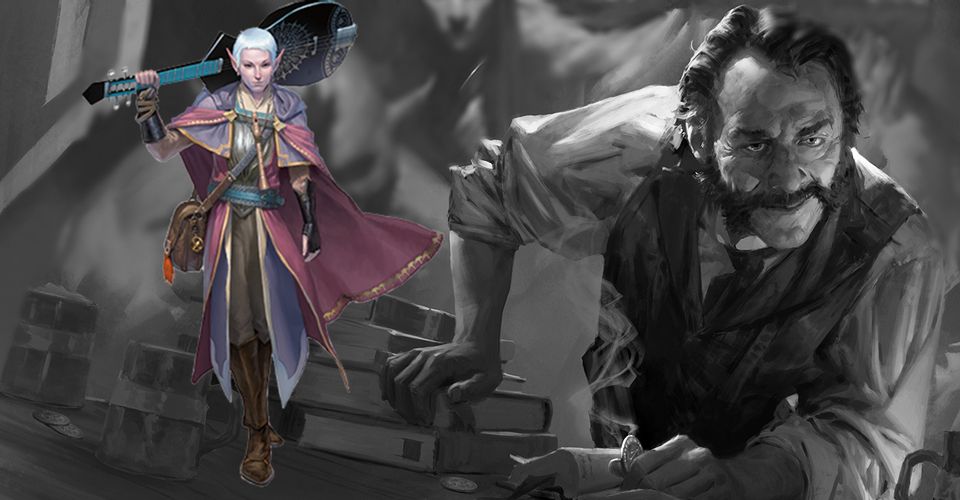Best Dungeons & Dragons Skill Proficiencies For New Players

Choice is an essential part of creating a Dungeons & Dragons character, but so many options can sometimes be overwhelming for new players. Although characters of certain classes tend to gravitate towards specific skill proficiencies, such as Wizards with Arcana, there are some skills that come in handy more often than the rest. For new players who are unsure of which options to pick, these are some skills that will be sure to make an impact during play.
Often considered the best skill proficiency in all of D&D, it’s hard to go wrong choosing Perception for a character. Perception dictates a character’s ability to sense danger and notice their surroundings, something that can be crucial both in and out of combat. Not only will having perception lessen the chance that enemies get a sneak attack, it could also mean the character notices something important that helps the party along their way. Even when playing a character without a great Wisdom score, Perception is still a worthwhile choice.
For characters that like to get up close and personal with their enemies in Dungeons & Dragons, Athletics is as important of a skill as any. Grappling can be a huge part of a character’s strategy, since it holds a creature in place by reducing their speed to 0. However, in order to grapple something a character must roll an Athletics check, so having the extra proficiency bonus can go a long way. The Athletics skill also dictates how successful a character is with things such as climbing and swimming, so it will come in handy when traversing tough terrain.
Stealth and Charisma Skills In Dungeons & Dragons

Stealth is an important skill proficiency in D&D that can help player characters both in and out of combat. Stealth allows characters to move around prohibited areas undetected as well as hide from enemies during combat. While Rogues and other stealth-based D&D builds are essentially required to select this skill proficiency, it is useful for nearly any character that doesn’t prefer heavy armor (which gives disadvantage on stealth). Stealth works well when combined with proficiency in Sleight of Hand or Thieves Tools, so players should consider selecting those as well when building a sneaky character.
There are three Charisma-based skills in D&D that help characters to communicate with NPCs, namely Persuasion, Intimidation, and Deception. For characters that are acting as their party’s “face,” meaning they talk to the most characters, having at least 2 of these skill proficiencies should be enough to navigate most social situations with ease. For non-face characters, it may still be worthwhile to select one, since the face won’t always be there to handle the talking. Persuasion is the safest choice of the three, since threatening or lying to someone can have serious consequences, but players should choose whichever fits best with their character.
With class features such as Expertise doubling certain proficiency bonuses for some characters, understanding which skills are the most useful is key when building a character. With that said, skills really are meant as a way to further customize a character in Dungeons & Dragons, so players should still feel free to base their choices off of a character’s backstory and personality instead of just gameplay.
About The Author

















